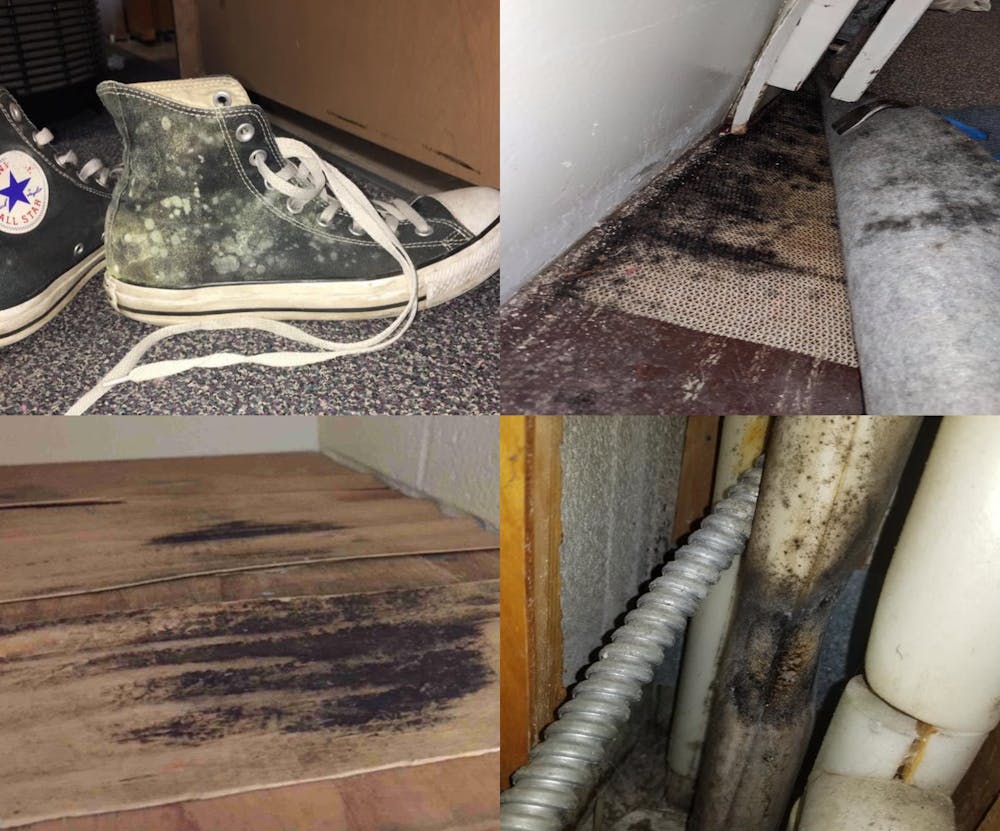Residents from several residence halls were folded into a lawsuit against IU last week after a judge ruled the case can proceed with class action status. These students could receive compensation for the mold that was discovered in campus residence halls last year, pending the result of the suit.
Monroe County Circuit Court Judge Holly Harvey agreed to allow two groups of 2018-2019 on-campus residents to join the lawsuit — those provided moldy rooms in Foster Quad, McNutt Quad and Teter Quad and those who were required to use noisy HEPA air purifiers in Ashton Center, Collins Center, Hillcrest and Wright Quad. This ruling groups these students into the lawsuit and does not decide the case.
The university will appeal the order, IU spokesperson Chuck Carney said in an email.
“IU is confident that it responded reasonably and appropriately to the mold issues and concerns,” Carney said in the email.
A class action lawsuit comes from a person or group of people on behalf of others who have an “identical interest in the alleged wrong,” according to Merriam-Webster Dictionary.
In the aftermath of last year’s mold discovery, the university expedited renovations on Foster and McNutt Quads, bought out beds in three off-campus apartment complexes and paid out more than $7 million to affected students.
This lawsuit was first filed in fall 2018, but was amended and extended last January. The Indiana Daily Student reported in April that the university's lawyers claimed in court documents that IU had no contractual obligation to keep its residence halls clean.
In response, IU spokesperson Chuck Carney said the university believes it must keep its residence halls safe, and the university’s legal argument to the contrary was in response to a specific part of Indiana law.
“To not keep our students in safe living conditions simply defies logic, given that the success and wellbeing of students is the reason we exist,” Carney wrote.
Since then, a number of the lawsuit’s original charges have been dropped, but questions of contractual obligations IU owes to its residents remain.
IU filed its response to that January 2019 complaint in September. The document denied most of the students’ lawyers' claims, including that IU agreed in its contract to provide residence halls that were “suitable and ready for inhabitation.”
“The University wants its students to live in a safe, appropriate and healthy environment,” the response says multiple times, “but denies the applicability of this legal doctrine or the existence of any implied warranty.”
This legal question could be addressed in court as the case continues to play out.




